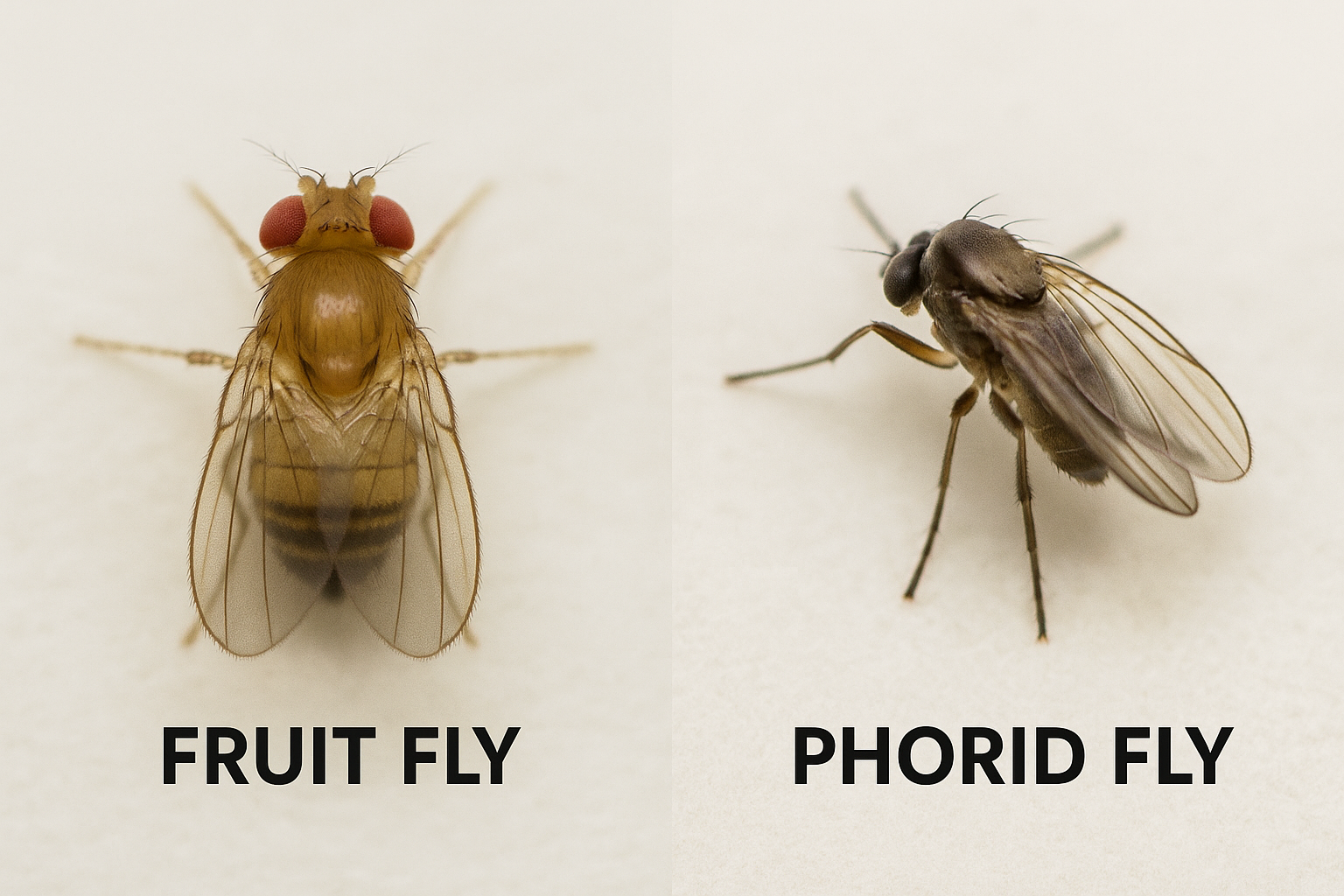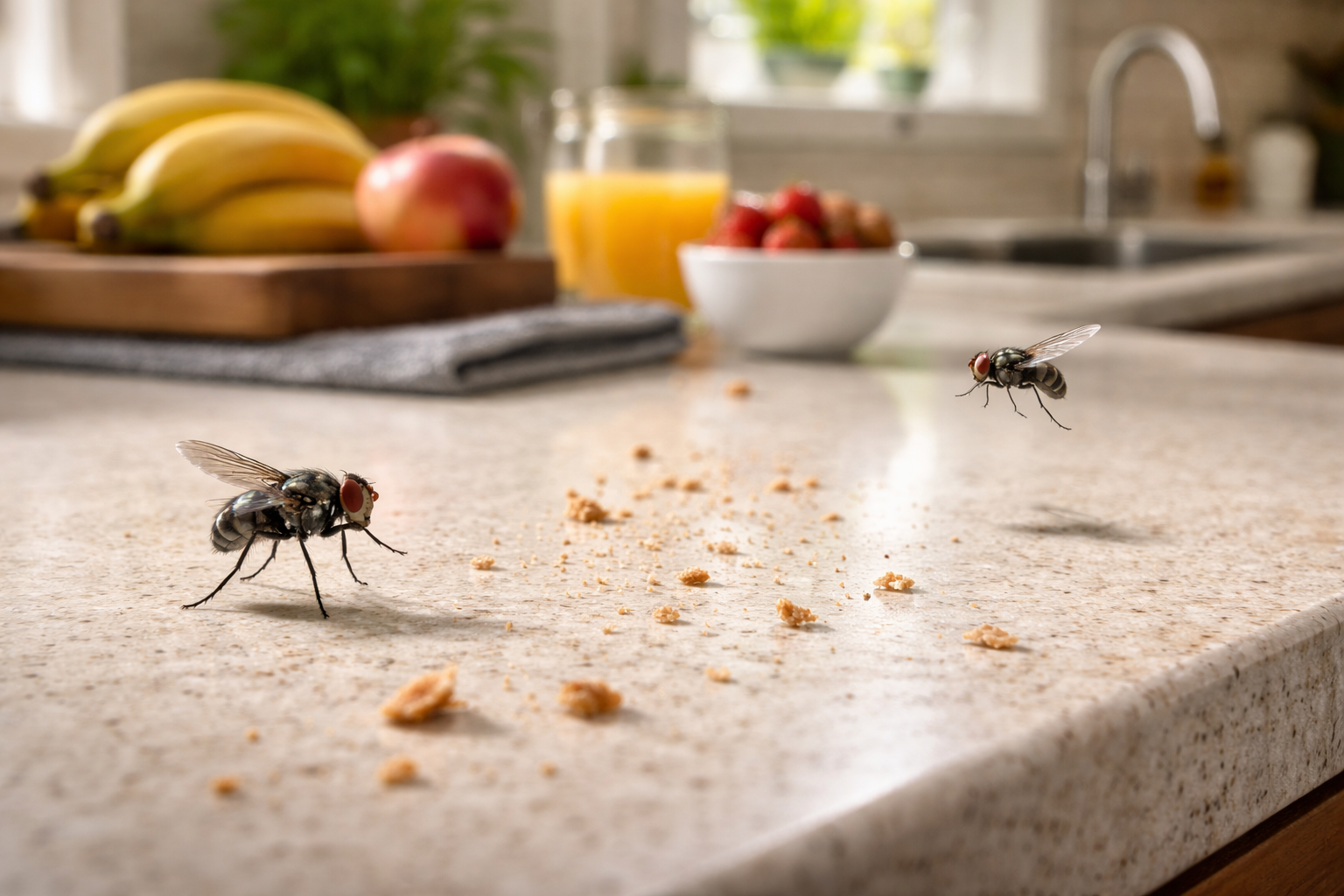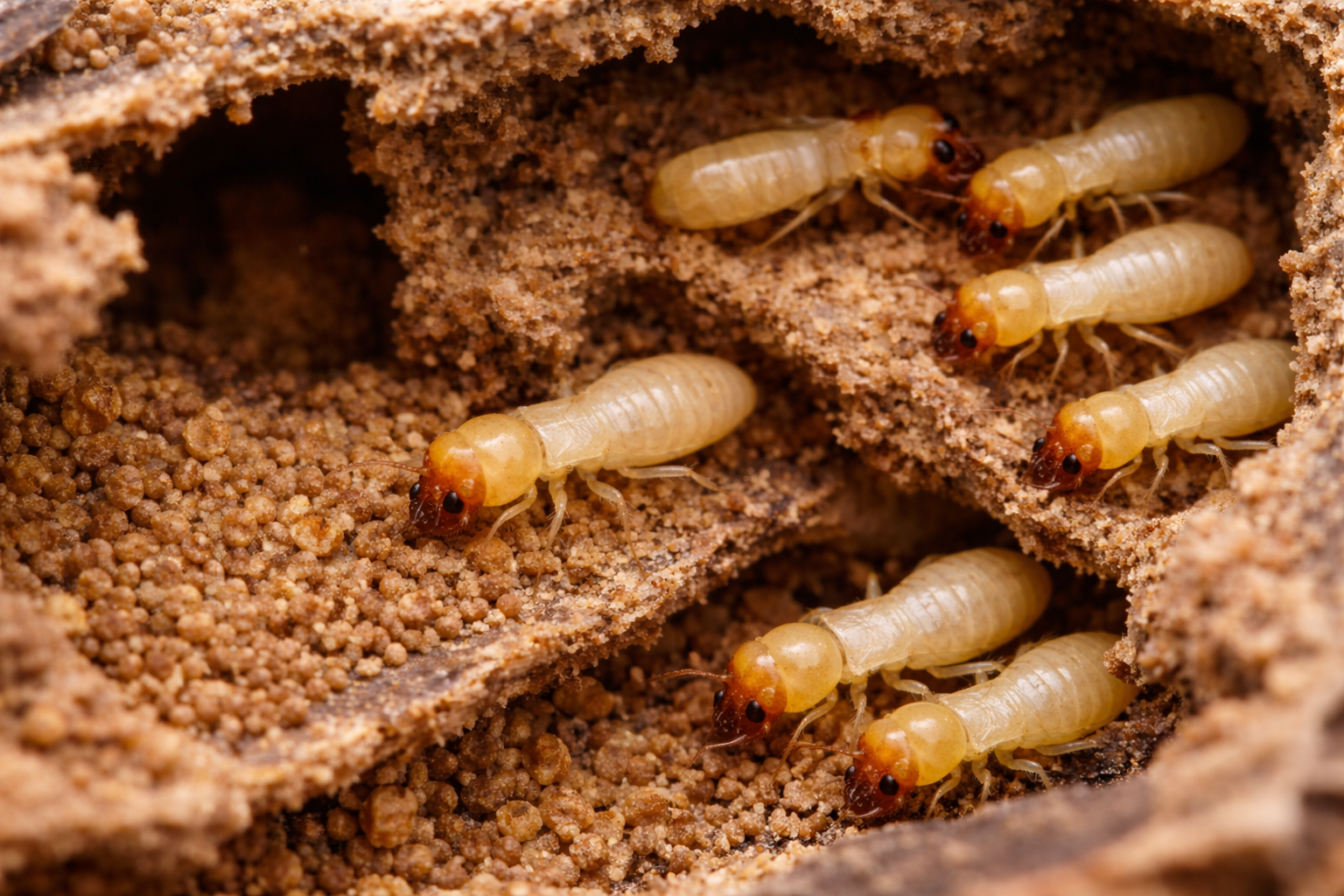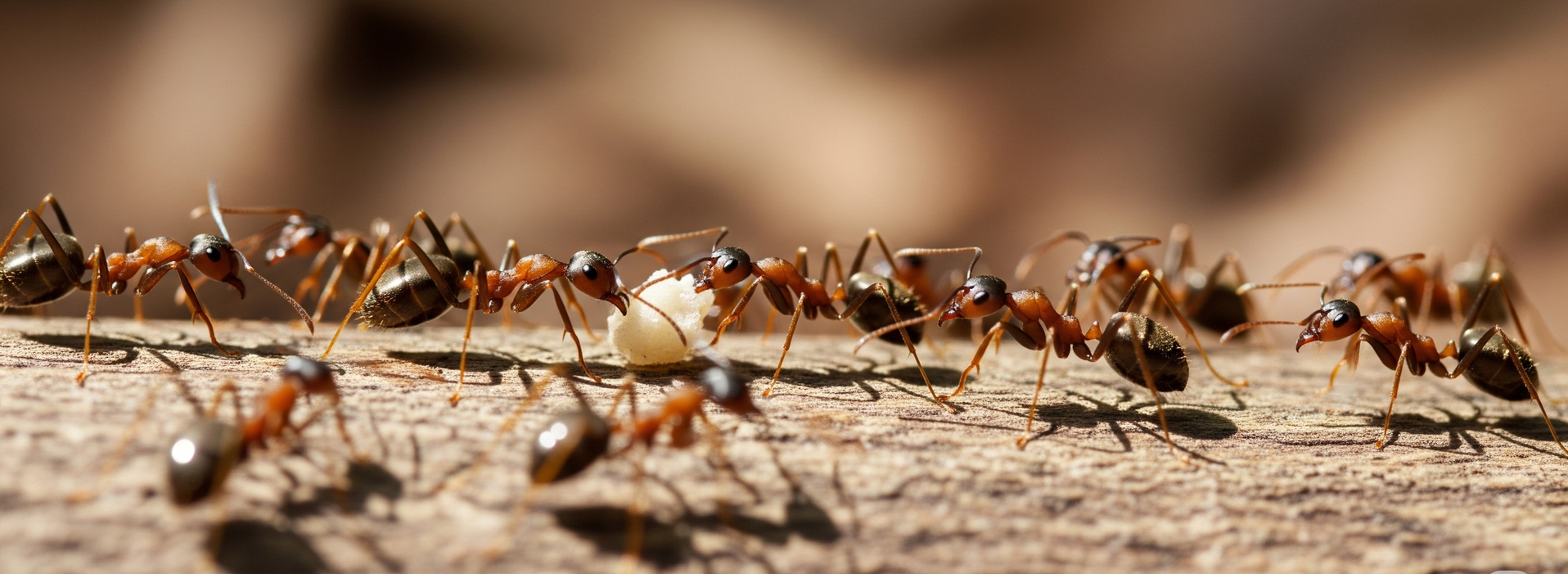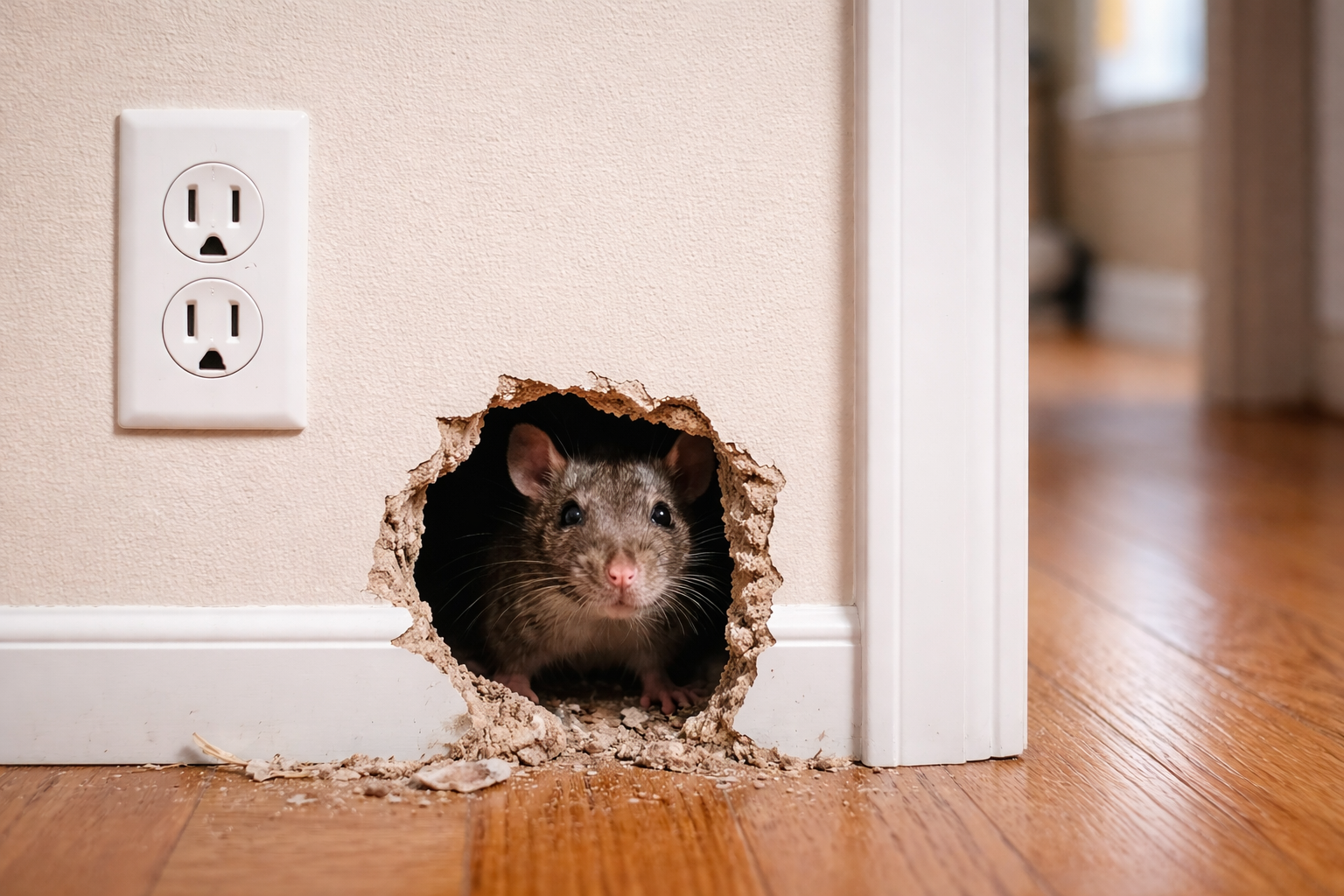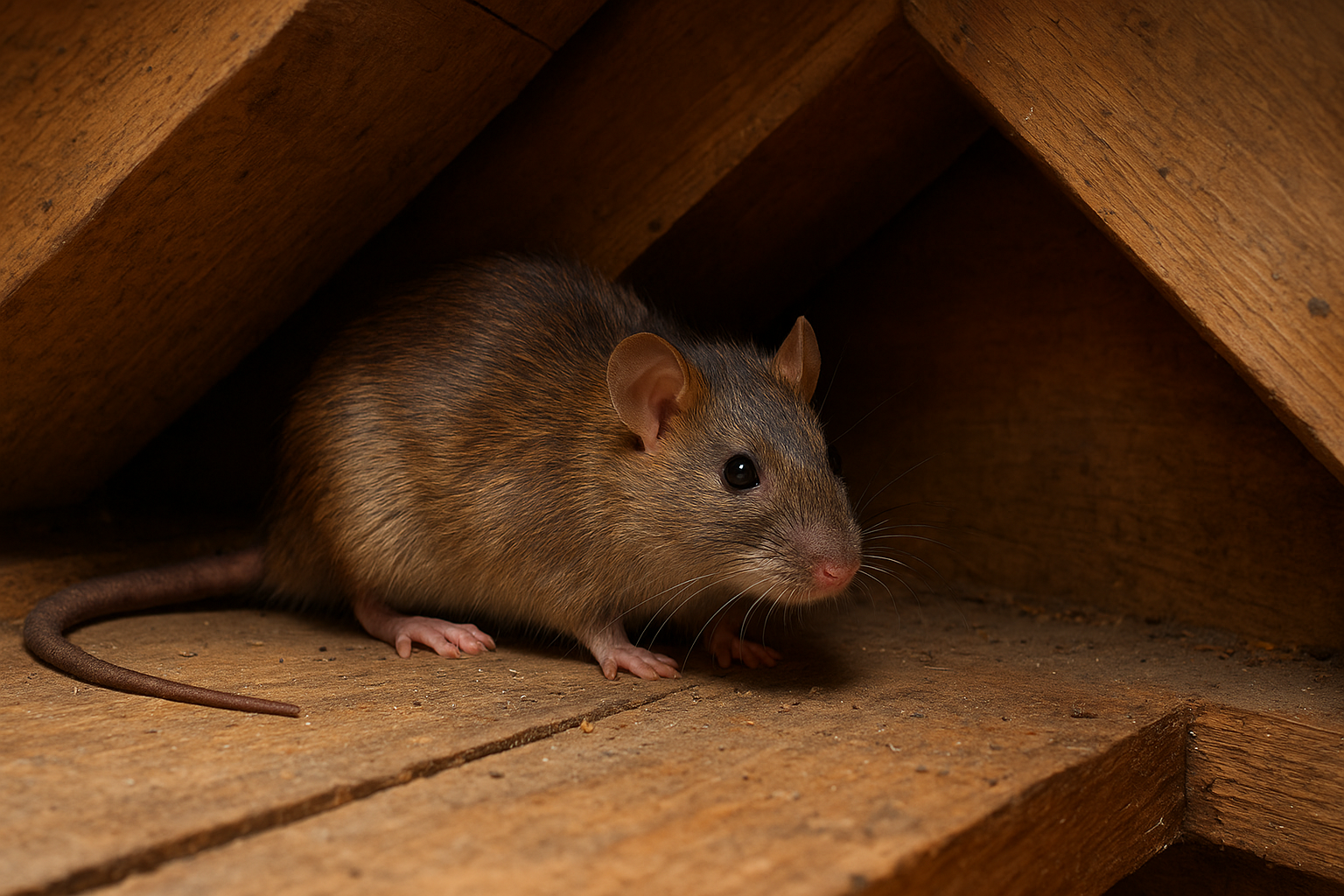What Attracts Fruit Flies to Your Home?
Fruit flies, known scientifically as
Drosophila melanogaster, are constantly searching for moist, fermenting organic matter — their ideal breeding ground.
That includes:
- Overripe or rotting fruit
- Spilled juice or soda
- Dirty dishes and wet sponges
- Sticky trash bins or food-soiled recyclables
They don’t need much. Even a damp rag left overnight or a bit of grime in your sink drain can be enough to attract them.
The real challenge? Fruit flies often lay eggs in places you can’t see. Drains, garbage disposals, behind appliances, and the rim of your trash bin can all serve as nurseries for the next generation. Tossing out old produce helps, but unless you eliminate every breeding ground, the problem will keep coming back.
Fruit Flies vs. Phorid Flies: Know the Difference
How Fast Do Fruit Flies Multiply?
Here’s the alarming truth: fruit flies can complete their life cycle — from egg to adult — in under
2 weeks.
Each female can lay
up to 500 eggs at once. Those eggs hatch within hours and become full-grown, egg-laying adults in just days. Warm kitchens and moist surfaces give them exactly what they need to thrive, making your home the perfect environment for population booms.
The eggs are laid directly on or near food sources, allowing the larvae to feed the moment they hatch. That’s why visible flies are only the tip of the iceberg — the real trouble lies in what you
can’t see.
Why Home Remedies Aren’t Enough
You’ve seen the DIY hacks: apple cider vinegar traps, wine in a glass, plastic wrap over bowls. While these may catch a few adult flies, they don’t address the root problem.
Here’s why home remedies often fail:
- They don’t eliminate hidden eggs or larvae
- They can attract more flies if left out too long
- They offer short-term results without solving the source
In some cases, sugary traps might even make the problem worse by drawing in more flies from outside. Without addressing the hidden breeding sites, the cycle will continue.
Traps are only a Band-Aid. If you want the infestation gone for good, you need a
comprehensive solution.
When to Call Insect IQ
If you’ve tossed the fruit, scrubbed every surface, cleaned the drains — and still find yourself swatting at persistent pests — it’s time to
call in the pros.
At
Insect IQ, we don’t just treat the visible flies. We go deeper to target the source — the drains, the disposals, the spaces behind and beneath your appliances. Our expert technicians use proven, family-safe methods to eliminate adult flies
and their eggs and larvae.
We don’t just treat the symptoms — we eliminate the cause. And we’ll walk you through preventative steps to ensure they don’t come back.



